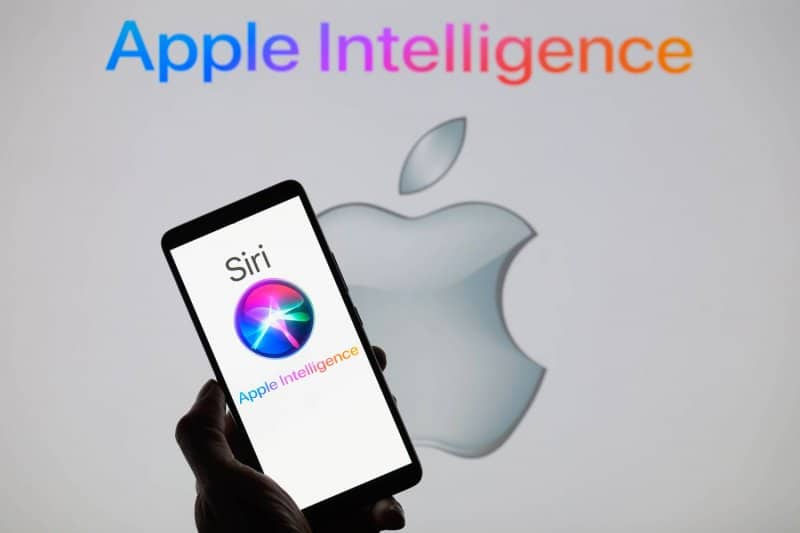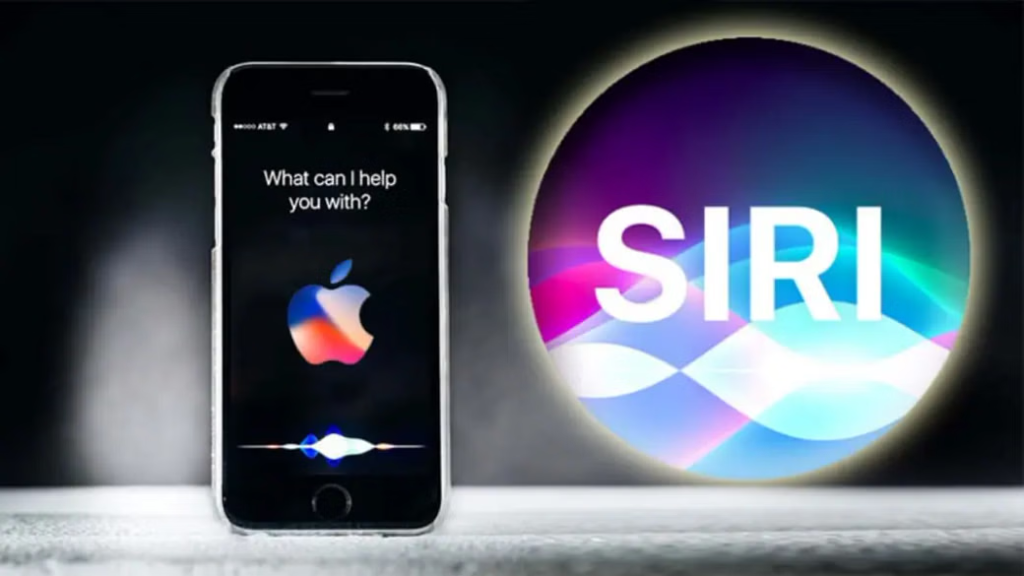In a surprising turn of events, Apple has announced a significant delay in the rollout of its highly anticipated AI-powered Siri update, originally slated to enhance the iPhone’s virtual assistant with advanced capabilities. The postponement, now expected to stretch into 2026, has sparked widespread discussion about Apple’s struggles to keep pace in the rapidly evolving artificial intelligence (AI) landscape. This delay not only affects iPhone users eagerly awaiting a smarter Siri but also casts a shadow over Apple’s broader ambitions to establish itself as a leader in AI innovation. As competitors like Google and OpenAI continue to push the boundaries of AI, Apple’s challenges highlight gaps in its core AI capabilities, raising questions about its future in this critical tech race.

A Promising Vision for Siri Falls Short
When Apple unveiled its “Apple Intelligence” initiative at the Worldwide Developers Conference (WWDC) in June 2024, it promised a transformative overhaul for Siri. The updated assistant was expected to deliver personalized responses, deeper app integration, and contextual awareness—features that would allow Siri to perform complex tasks like editing photos, managing files, or adding contacts based on user interactions. For instance, Apple demonstrated scenarios where Siri could pull a recipe from a friend’s message or update a contact’s address without needing additional input. These enhancements were marketed as a cornerstone of the iPhone 16 series, with Apple touting the devices as “Built for Apple Intelligence.” However, the reality has fallen far short of the hype.
Reports indicate that the advanced Siri features, initially planned for the iOS 18.4 update in spring 2025, have been pushed back to the iOS 19.4 update, potentially as late as spring 2026. According to Bloomberg, Apple is rebuilding Siri’s underlying architecture from the ground up to address technical challenges, but the assistant currently functions reliably only 60-80% of the time. This inconsistency has forced Apple to delay the rollout to meet its high standards for quality and reliability. CEO Tim Cook addressed the issue during a recent earnings call, stating, “We need more time to complete our work on these features so they meet our high-quality bar.” This admission has done little to quell the growing frustration among users and analysts alike.
The Fallout: Lawsuits and Reputational Damage
The delay has had immediate consequences, both legally and in terms of public perception. A class-action lawsuit filed in the United States accuses Apple of false advertising, claiming the company promoted the iPhone 16 with AI features that were not ready at launch. The lawsuit points to marketing campaigns, including a now-removed iPhone 16 ad featuring actor Bella Ramsey, which showcased Siri’s promised personalization features. “Apple advertised Apple Intelligence and an enhanced AI-powered Siri to promote the iPhone 16 model, when it reportedly knew this was not true,” the legal filing stated. This misstep has damaged Apple’s reputation for delivering seamless, polished products—a hallmark of the company since its inception.
The backlash extends beyond legal troubles. Posts on X reflect growing sentiment that Apple’s AI efforts are lagging behind competitors. One user remarked, “Apple’s decision to delay new AI features in Siri came after years of dysfunction and clashes between the AI/ML and software engineering groups,” pointing to internal challenges as a root cause.23 Another post highlighted the broader impact, noting that the Siri delay has disrupted Apple’s plans for a smart home hub, which relies on the same App Intents framework. These sentiments underscore a growing perception that Apple, once a trailblazer, is struggling to keep up in the AI race.

Internal Challenges and Leadership Shifts
Apple’s AI struggles are not limited to technical hurdles. Reports suggest internal dysfunction has played a significant role in the delays. Bloomberg revealed that Apple has restructured its AI and machine learning organization, with key leadership changes aimed at addressing the crisis. John Giannandrea, Apple’s AI chief and former Google executive, has been replaced by Mike Rockwell, the creator of the Vision Pro headset, to oversee Siri’s development. This shakeup follows criticism of Giannandrea’s leadership, with some insiders blaming his initial skepticism about transforming Siri into a ChatGPT-style assistant for slowing progress.
According to The New York Times, Apple is now planning to release some of Siri’s delayed features in the fall of 2025, potentially alongside the iPhone 17 and iOS 19. These features include capabilities like editing and sending photos on request, which would bring Siri closer to the functionality of modern AI assistants. However, the company’s cautious approach to AI, driven by its commitment to privacy and on-device processing, may be a double-edged sword. While Apple’s Private Cloud Compute system enhances privacy for cloud-based AI models, its compact AI model—designed to fit on iPhones—lacks the robustness of larger models used by competitors like OpenAI and Google. This limitation raises questions about whether Siri can deliver the transformative experience Apple has promised.
Why Apple’s AI Lag Matters
Apple’s delay in delivering an AI-powered Siri comes at a critical time. The tech industry is in the midst of an AI revolution, with companies like OpenAI, Google, and Microsoft integrating advanced AI into their products. Google’s Gemini and OpenAI’s ChatGPT have set a high bar for conversational AI, offering features like web access, multi-step task execution, and natural language understanding. In contrast, Siri’s current capabilities remain limited to basic tasks like setting reminders or answering simple queries, leaving it far behind its rivals.
The delay also has broader implications for Apple’s ecosystem. The company’s smart home ambitions, including a rumored HomePad device, rely heavily on Siri’s ability to serve as a central hub for controlling apps and devices. Without a robust AI assistant, Apple risks ceding ground to competitors like Amazon, whose Alexa assistant continues to evolve. Moreover, Apple’s struggles could dampen consumer enthusiasm for its upcoming iPhone 17, which UBS analysts predict will lack significant AI upgrades or a major redesign, potentially slowing upgrade cycles.
A Path Forward: Can Apple Catch Up?
Despite these setbacks, there is reason for cautious optimism. Apple’s upcoming WWDC, scheduled for June 9-13, 2025, is expected to showcase iOS 19 and other platform updates, with Apple Intelligence as a central focus. The company is reportedly working on an in-house AI chatbot that has reached ChatGPT-level performance after six months of internal testing, suggesting progress behind the scenes. Additionally, Apple is exploring AI applications beyond Siri, such as improving iPhone battery life through predictive algorithms and revamping the Safari browser with AI-powered search capabilities.
For Apple to regain its footing, it must address both technical and cultural challenges. The company’s obsession with perfection, while admirable, may be hindering its ability to iterate quickly in the fast-paced AI landscape. Luc Julia, a co-designer of Siri, recently told PYMNTS that Apple’s focus on flawless execution could be weighing down its AI efforts. Loosening its rigid standards and embracing a more iterative approach could help Apple deliver features faster without sacrificing quality.
What This Means for Consumers
For iPhone users, the delay means waiting longer for a Siri that can compete with modern AI assistants. In the meantime, Apple has introduced incremental improvements, such as ChatGPT integration and “Type to Siri” functionality, to bridge the gap. However, these updates fall short of the transformative experience promised at WWDC 2024. Consumers who purchased the iPhone 16 expecting cutting-edge AI features may feel shortchanged, especially as competitors continue to roll out advanced AI capabilities.
Looking ahead, Apple’s ability to deliver on its AI promises will be crucial to maintaining its competitive edge. The company’s loyal customer base and strong ecosystem give it a solid foundation, but it must move quickly to close the gap with rivals. As one X post put it, “Apple’s AI crisis isn’t just about Siri—it’s about whether they can still innovate at the pace the industry demands.”

Conclusion
Apple’s delay in launching its AI-powered Siri update underscores the challenges the company faces in keeping up with the AI revolution. Technical hurdles, internal dysfunction, and a cautious approach to privacy have slowed progress, leaving Siri lagging behind competitors. While Apple’s commitment to quality is commendable, the indefinite postponement of key features has sparked lawsuits, reputational damage, and questions about its AI strategy. As the company prepares for WWDC 2025, all eyes will be on whether it can deliver a Siri that lives up to its lofty promises—and whether it can reclaim its position as a leader in innovation.
Sources:
- Bloomberg: How Apple Intelligence and Siri AI Went So Wrong
- The Hindu: Apple sued over delayed launch of Apple Intelligence in iPhone 16
- Business Standard: Apple working on AI version of Siri with ChatGPT-like capabilities
Best For you :- WNBA Teams Partner with Luxury Fashion Brands as League Valuations Soar on Record Investments






